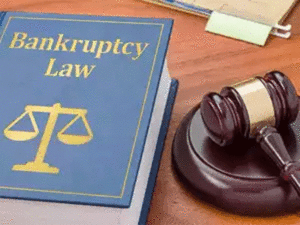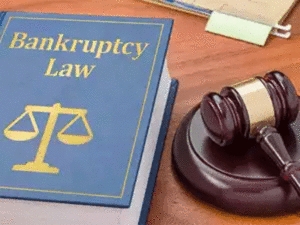
By Ritin Rai
The Ordinance amending the Insolvency and Bankruptcy Code (IBC), and suspending the law for six months from June 5, was long overdue. Over the last two months during Covid-19 lockdown, commentators had suggested more nuanced amendments to IBC to address the pandemic’s impact on businesses and the economy. GoI has, however, adopted a more binary route.
The Ordinance suspends the filing of all insolvency petitions — voluntary or by creditors — in respect of any payment default arising on, or after, March 25. The six-month suspension could be for a longer period of up to one year.
IBC had ushered a regime of absolute liability, in which any payment default by a corporate resulted in it being sent into insolvency, with the promoter barred from participating in its revival. This model was clearly unsustainable during a nationwide lockdown. Payment defaults for reasons entirely beyond the control of corporate entities should not lead to their insolvencies, especially with their promoters ring-fenced.
However, the blanket suspension of IBC swings the pendulum too far in the other direction. In granting a six-month (and possibly a 12-month) immunity from IBC across the board, the Ordinance undermines the salutary purpose with which the law was enacted in the first place — to provide for resolution in a time-bound manner that enables the maximisation of the value of the corporate entity’s assets.
The Ordinance could have adopted a rule of reason in determining which insolvency petitions could be admitted against individual corporate debtors. The regime of absolute liability could have been replaced by one where corporates that demonstrated a link between Covid-19-instigated lockdown and payment default, and demonstrated a path to viability, would not face insolvency resolution proceedings.
Alternatively, the Ordinance could have suspended the application of Section 29A of IBC for a period of time. This would have enabled promoters to participate in the insolvency resolution of their companies. It would have ensured that the potential insolvency of struggling corporates would be identified early, and that there would be some oversight of their business activities.
The Ordinance (with just two amendatory sections) does not adopt any such approach. Rather, it simply suspends the filing of all insolvency petitions where a default has occurred after March 25. This means that irrespective of the reason for default, or prospects of revival, the promoter continues in management. This may have negative impact for those stakeholders with whom the corporate continues to transact, as well as a longer-term impact on creditors if the corporate subsequently goes into insolvency.
The lack of any immediate scrutiny or oversight of potentially insolvent companies is a concern IBC was enacted to address. The Ordinance now reintroduces this concern. Nowhere is this more clearly highlighted than in the suspension of insolvency petitions not just by operational or financial creditors, but also by voluntary insolvency petitions by the corporate debtor itself.
There appears to be no justification to prohibit a company that is insolvent — and will continue to be so — from filing a voluntary insolvency petition as early as possible. The rationale that ‘it is difficult to find adequate number of resolution applicants to rescue the corporate person who may default in discharge of their debt obligation’ used for the Ordinance is unsatisfactory, and makes it harder for companies to find their own feet.
IBC guards against potentially insolvent companies entering into preferential, undervalued or extortionate credit transactions. If such transactions are established to have occurred in a period preceding an insolvency, they can be reversed by the force of law. If struggling corporates are to revive, they will inevitably have to restructure their debts or sell their assets, divisions or businesses as they attempt to clean up their balance sheets. In not providing some clearer safeguards for such legitimate restructuring transactions, the Ordinance fails to address the uncertainty that will surround such transactions.
The consequences of such legal uncertainty are well known: these transactions may not be entered into in the first place, or will become more expensive for corporates to undertake. Neither consequence is desirable.
The IBC-suspending Ordinance may have introduced a false sense of security in the short term — not unlike the nationwide ‘one size fits all’ lockdown. But it opens up the real possibility of a surge in insolvency cases with potentially wider consequences for all stakeholders when the suspension lifts, six or 12 months later.
The writer is a New Delhi-based senior advocate
Source: indiatimes.com

